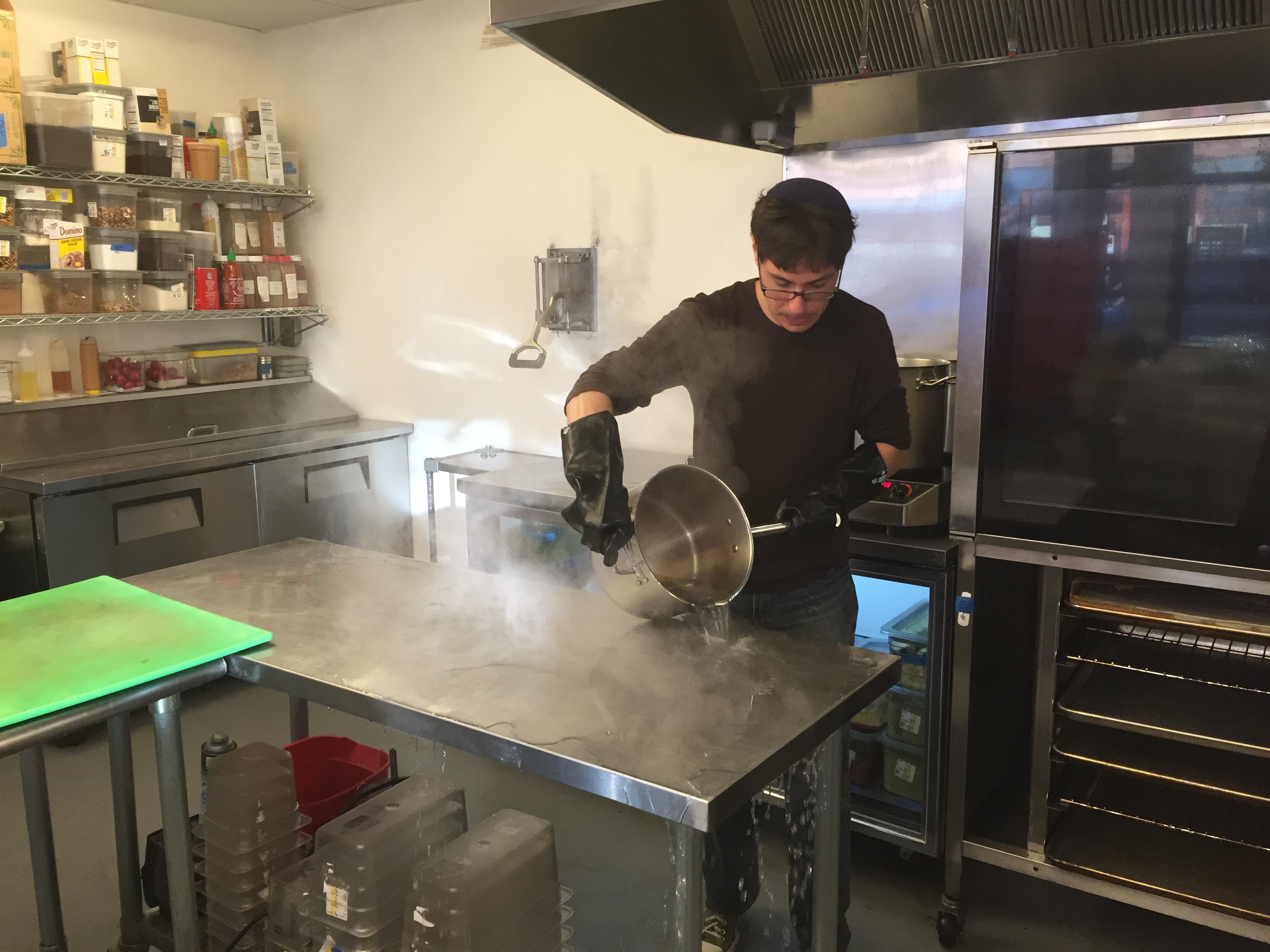We’ve done few things in Clover’s history that have generated as much excitement as our recent move to Kosher certification.
Last week we invited you to see BLV, HSQ, and KND get Kashered. Soon we’ll have open Kashering of HFI and BUR. And then we’ll be 100% Kosher. It’s really exciting for us.
Let’s call this post a FAQ on Clover Kosher. I’m getting more questions than I can properly answer, and our employees are doing their best to field the questions, but some of these are really technical. One of our employees accidentally said we were KVH certified (which we’re not, KVH is a different Kosher certification than we have) and it caused a small flurry of notes, including some not super friendly public notices from KVH. I understand, there are strong emotions around Kosher certification and it’s important that information is clear (and correct!). Sorry about that. We’ve since corrected the error in communication.
What is your certification?
We are certified Kosher by Rabbi Dolinger
Why did Clover pursue Kosher certification?
I want Clover to be accessible to as many people as possible. I used to work with somebody who kept Kosher and was amazed how hard it was. I’m happy that we can make it easier for people to maintain their religious convictions. Minutes after our first Kashering post Tamara (my former colleague) wrote me a note. I couldn’t be happier to be able to take this step.
Are you (Ayr) Jewish?
I’m not.
Which locations are Kosher?
We’re working towards all locations, but haven’t finished the process as of today (7/21/15). Currently CloverHSQ, CloverKND, CloverHUB, CloverBLV, all Clover trucks in operation, and our commissary are certified. We’re working to get CloverHFI and CloverBUR added to that list.
Is your cheese kosher?
We’ve followed Rabbi Dolinger’s guidance and disposed of (donated) all non-kosher products before the Kashering (mostly vinegar). The cheese we use is from Grafton VT. It uses a vegetarian rennet. It is not certified Kosher, but Rabbi Dolinger is considering it Kosher. This is where I’m not an expert. I know some don’t consider any cheese Kosher unless it is certified, vegetarian rennet or no. Most Kosher cheese tastes horrible (sorry, but it’s true). So this is a challenging issue.
It’s a challenging issue and a really great opportunity for Clover and the broader community. We’re having conversations with Grafton and they are going to get certified Kosher cheese for us. They may move their entire operation to certified Kosher. I think that’s really cool and great for those in the Kosher community who love tasty cheese. And it could be great for Grafton, a small business that we love. I don’t think that change would happen without progressive and positive people trying to make change. We’re thankful to be working with Rabbi Dolinger.
What is Kashering?
It means the process of making something Kosher.
Is Kosher a physical thing? Or is it a religious thing?
I’m probably not the best to answer this one either, but from my observation it seems to be both. It’s definitely physical, Chris and I were up to midnight helping Kasher the HUB. But clearly it’s a religious process and definition.
Why is there so little Kosher certified anything in Boston?
Well… we tried for years to get Kosher certification. We hit dead ends. So for years, despite our best efforts, the only path we had to Kosher certification required we have a Rabbi on staff for all hours of operation at all locations. Since Kosher is a determination by a Rabbi there is variation in how different Rabbis determine what is Kosher. This requirement was so onerous for us that there was really no way we could possibly make it happen. I expect others have found the same thing.
I had a conversation with Grafton earlier today and they told me they have been interested in pursuing this in the past but that the certification process has been far to expensive.
So it’s a funny thing. It’s a religious process, but it’s also a business. And the cost and requirements are at the discretion of the Rabbi who stands to benefit from the business. In some ways that makes a ton of sense. But it obviously can lead to situations in which few if any can pursue the certification, regardless of their positive intentions.
Is it a pain to be Kosher? Isn’t that an operational headache?
There are requirements of us that have an impact on our operations. But none of these are things we wouldn’t want to be doing anyway.
For example we can’t have employee food in our kitchens. But guess what, Massachusetts Health Code requires the same thing!
The most unusual requirement for us is that if a pilot light goes out we have to have an observant Jew relight. And we have a special “olympic torch” (a fryer at HUB) that was lit by Rabbi Dolinger, we use that “torch” for all lighting.

